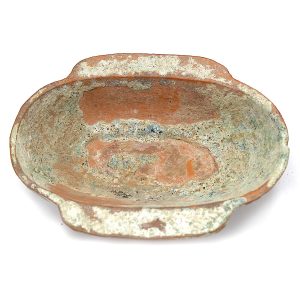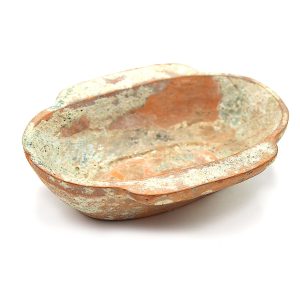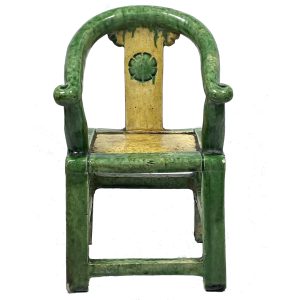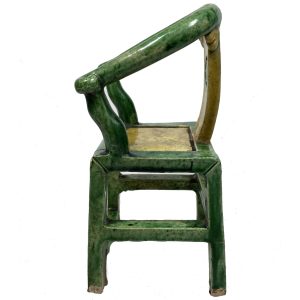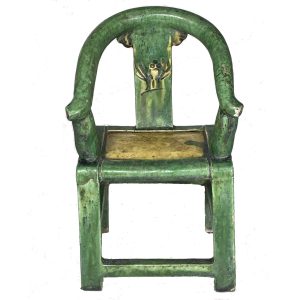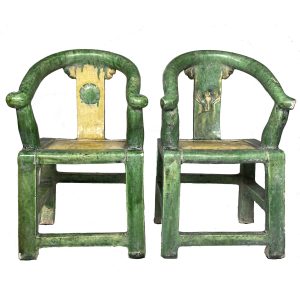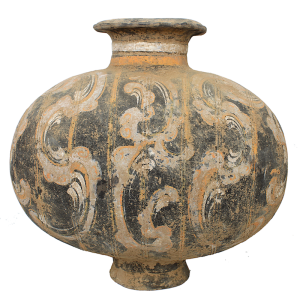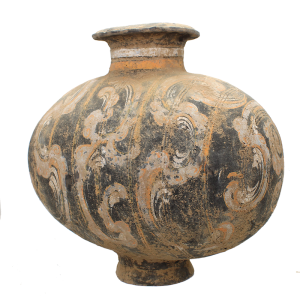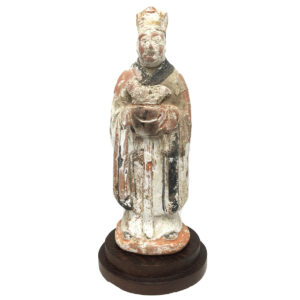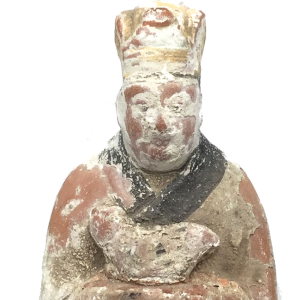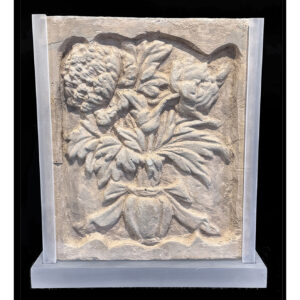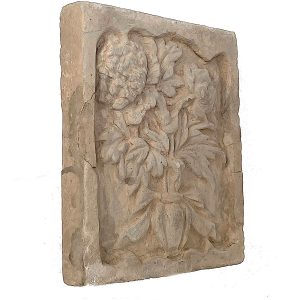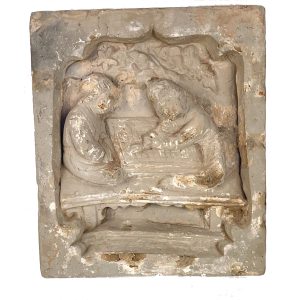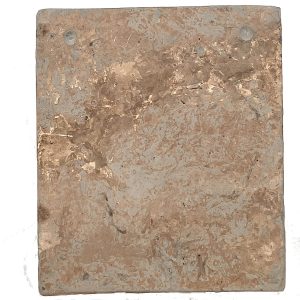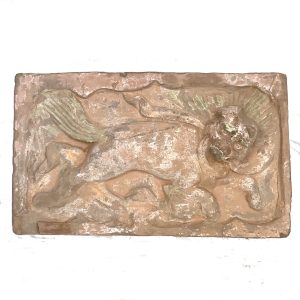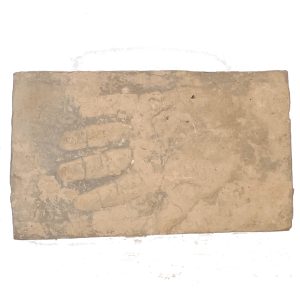-
Sale!


$450.00 Original price was: $450.00.$310.00Current price is: $310.00.
H: 1.5″ W: 5.125 ” D: 3.875 ” | FREE SHIPPING WITHIN CONTINENTAL U.S.!
Used for rituals and ceremonies, lead green glazed earthenware wing cups were popular burial objects. The tomb’s humidity caused the lead to oxidize to a lustrous, prized iridescent, silver-green.
-
Sale!


$395.00 Original price was: $395.00.$315.00Current price is: $315.00.
H: 2.5″ W: 4.5″ D: 2.375″ | FREE SHIPPING WITHIN CONTINENTAL U.S.!
This diminutive mingqi pig is totally charming and fanciful with an iridescent glaze and would be especially appealing as a send off for the deceased to the nether world or in a contemporary setting. Pigs were especially prized and images were often included as items the deceased would need to live comfortably in the after life.
-
Sale!


$685.00 Original price was: $685.00.$395.00Current price is: $395.00.
H: 7.375″ W: 4.375″ D: 3.75″ | FREE SHIPPING WITHIN CONTINENTAL U.S.!
Horseshoe chairs were considered a sign of rank used by officials and often ancestral figures were portrayed sitting in them to reflect their high status. This well-modeled green glaze ceramic mingqi of a horseshoe chair is decorated with a yellow glaze imitating caning and the decorative carved circular design on the splat. It pairs perfectly with Ming Dynasty Earthenware Horseshoe Chair 3330 and together would add to a fine collection of miniature Chinese ceramics.
-
Sale!


$685.00 Original price was: $685.00.$395.00Current price is: $395.00.
H: 7.375″ W: 4.375″ D: 3.75″ | FREE SHIPPING WITHIN CONTINENTAL U.S.!
Horseshoe chairs were considered a sign of rank used by officials and often ancestral figures were portrayed sitting in them to reflect their high status. This well-modeled green glaze ceramic mingqi of a horseshoe chair is decorated with a yellow glaze imitating caning and the decorative carved circular design on the splat. It pairs well with item Ming Earthenware Horseshoe Chair 3331. This would be a fine addition to a collection of antique ceramics or simply a beautiful decorative piece to brighten a small space.
-
Sale!


$2,150.00 Original price was: $2,150.00.$1,750.00Current price is: $1,750.00.
H: 11.75” W: 12.25” CALL 213-568-3030 OR EMAIL [email protected] FOR SHIPPING.
Families placed cocoon jars with auspicious designs containing magical mixtures of mulberry leaves in tombs for departed’s souls to drink to transform in afterlife.
-
Sale!


$395.00 Original price was: $395.00.$295.00Current price is: $295.00.
H: 3.375″ W: 2.75″ D: 2.5″ | FREE SHIPPING WITHIN CONTINENTAL U.S.
One of a set of 12 Zodiac attendant figures holding a small calendar animal of the year represented as part of mingqi placed in the graves of deceased.
-


$995.00
H: 11” W: 9.5” D: 1.65” | FREE SHIPPING
This earthenware brick tile bordered with a deep scalloped frame depicts a vase with a bouquet of propitious flowers: a chrysanthemum and a peony wrapped with an elegant ribbon. Tiles like this were made to decorate the large numbers of buildings created during the prosperous Song dynasty and to adorn tombs. This elegant brick is in good condition for its age with expected chips and cracks, some restoration of background and a re-glued frame break on each side. It has earth adherents from its burial in a tomb.
-
Sale!


$495.00 Original price was: $495.00.$395.00Current price is: $395.00.
H: 11” W: 9.5” D: 2” | SOLD
As part of the The Song dynasty cultural expansion, government and public buildings and tombs were built with interior walls decorated with earthenware unglazed mold-made brick tiles. This fanciful vibrant tile with a scalloped frame portrays two people playing a board game called wéiqí which originated in China over 2500 years ago. It is the world’s oldest and most complex board game still played.
-
Sale!


$485.00 Original price was: $485.00.$395.00Current price is: $395.00.
The Song dynasty (960–1279) is considered the most culturally brilliant era in later imperial Chinese history. A massive expansion during this dynasty produced government, public and religious buildings and tombs with walls decorated with earthenware unglazed mold-made brick tiles. Some were purely decorative and others were wishes for happiness and comfort in the deceased’s afterlife…
End of content
End of content

